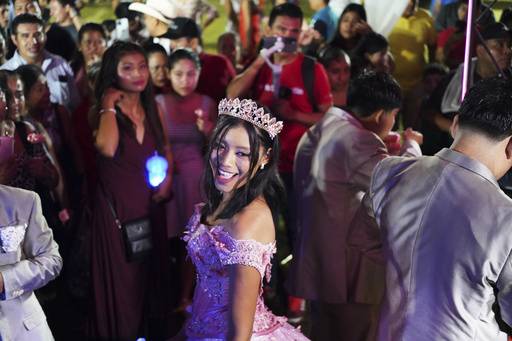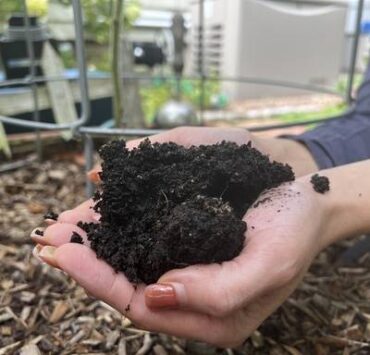Mexican teen goes from empty party to all-night stadium bash

AXTLA DE TERRAZAS, MEXICO—Cameras flashed and reporters crowded around 15-year-old Isela Anahí Santiago Morales as she stepped from a vintage car into the pouring rain. Her friends formed a cordon so she could make it to the stage. The daughter of local garbage collectors, dressed in a voluminous pink gown, looked both overwhelmed and exhausted.
Just six weeks earlier, Isela’s quinceañera—a traditional coming-of-age celebration in Latin America that marks a girl’s 15th birthday—had gone almost unnoticed. Her parents had prepared food and invited friends, but, she recalled, “Some didn’t come. My dad said we couldn’t let the food go to waste, so he posted on Facebook that we had enough left for 40 people.”
That simple post transformed her life.
Wooden house
Isela lives with her parents and sister in a modest wooden house with a tin roof in Axtla de Terrazas, a town of about 32,000 in the central state of San Luis Potosi. Her mother is of Nahuatl heritage and her parents earn a living collecting garbage. They had stretched their savings to host a small party on July 9.
But when the turnout was scant, the disappointment was sharp.
Quinceañeras hold deep cultural weight across Mexico and Latin America, representing a symbolic passage from childhood into womanhood. Families often save for years to host them.
The viral spark came when a local photographer offered a free shoot, followed by DJ and event organizer Jerónimo Rosales, who pledged to provide music.
“I’ve done sound for many quinceañeras,” Rosales said, “and what every girl wants is a nice party, that people attend and share with her. It was awful that she was left alone, and I thought, no, I can’t let that pass.”
The story spread, and donations started to pour in from local businesses and private citizens. The municipal government offered the town’s stadium as a venue. By Saturday evening, thousands were pouring in despite torrential downpours that periodically silenced the bands.
“At first we imagined something small, maybe 150 or 200 people in a little hall,” Rosales said. “Never did we think it would turn into what it is now.”
More than a dozen local music groups performed free of charge on two stages, the state government financed the headline act that played past midnight, and local politicians gave speeches from the stage.
‘National news’
For the choreographed dance—a customary highlight of any quinceañera—Isela performed alongside six teenage boys to a song composed especially for her.
About 2,000 people attended, some traveling from across Mexico and even Texas.
Sarai Rosales, 44, visiting from Dallas, said: “It became national news. When we saw it on TV at home, we got excited and decided to come … I thought the rain would put people off, but here we are.”
Yolanda Castro, a 37-year-old homemaker who came with her husband from a neighboring town, said: “We only knew her from social media, but we saw what was being organized and decided to join.”
It’s not the first time a quinceañera has gone viral in the state—in 2016, millions RSVP’d and thousands showed up to the birthday party of a San Luis Potosi teenager named Rubi Ibarra after her father awkwardly invited “everyone” to attend.
Toy donations
Isela, who is soft-spoken and visibly uncomfortable in the glare of cameras, asked attendees to donate toys for vulnerable children instead of bringing gifts.
Still, during the evening, she opened a package on stage to find a letter granting her a 90-square-meter plot of land in Axtla. She burst into tears when she realized she now owned property in her hometown.
The local government also granted her a scholarship to continue her studies.
The marathon party stretched until dawn on Sunday. The rain returned throughout the night but the crowd stayed.
Isela smiled broadly as she cut her birthday cake alongside Rosales and Ortega.

















